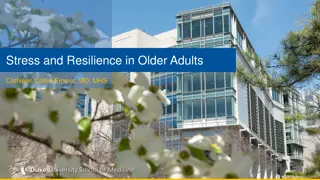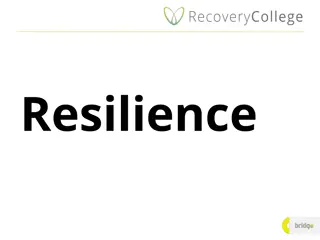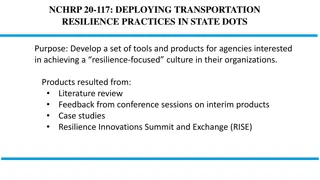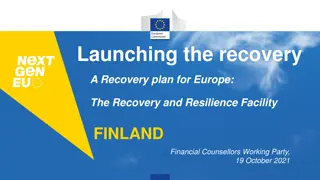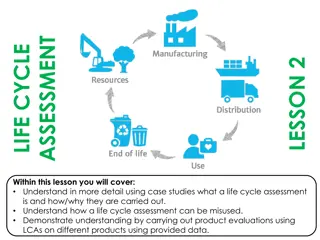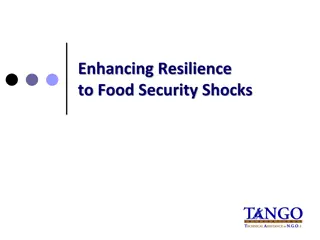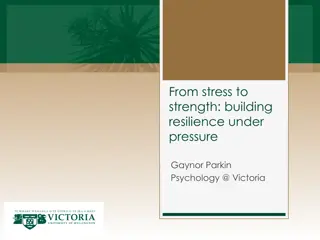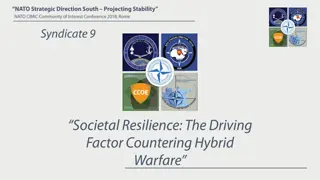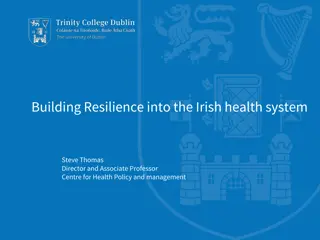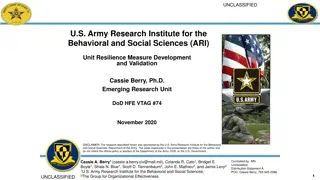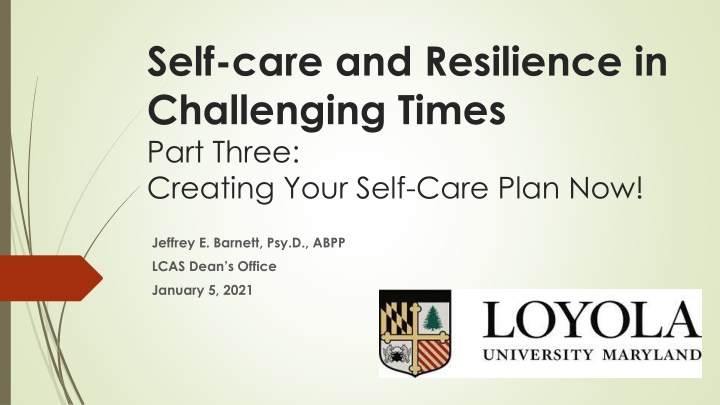
Crafting Your Personal Self-Care Strategy
Develop a customized self-care plan to enhance resilience during challenging times. Identify stressors, self-care activities, and warning signs. Maintain realistic goals and prioritize self-care integration into your routines. Avoid comparisons, focus on personal progress, and promote wellness as a collective effort in a supportive team environment.
Download Presentation

Please find below an Image/Link to download the presentation.
The content on the website is provided AS IS for your information and personal use only. It may not be sold, licensed, or shared on other websites without obtaining consent from the author. If you encounter any issues during the download, it is possible that the publisher has removed the file from their server.
You are allowed to download the files provided on this website for personal or commercial use, subject to the condition that they are used lawfully. All files are the property of their respective owners.
The content on the website is provided AS IS for your information and personal use only. It may not be sold, licensed, or shared on other websites without obtaining consent from the author.
E N D
Presentation Transcript
Self-care and Resilience in Challenging Times Part Three: Creating Your Self-Care Plan Now! Jeffrey E. Barnett, Psy.D., ABPP LCAS Dean s Office January 5, 2021
Your Self-Care Plan: First Steps Make a list of stressors in your life (professional and personal). Write them down and update as needed. In addition to all the typical challenges and stressors in your work and life, be sure to include how the pandemic has added to them. Write a list of self-care activities relevant and accessible to you. Remember they need to be enjoyable, relaxing, or rejuvenating. Write out the maladaptive coping strategies you are at risk of using. List your personal warning signs of the need for increased self-care or changes in your life.
First Steps (Cont.) Do regular self-assessments/check-ins to monitor for their presence. Write out a tentative self-care plan. Make time for self-care and intentionally integrate it into your schedule and routines. Be sure to have realistic goals and expectations of yourself. Focus on the habit or routine and its positive effects, not on how much or how well you are doing it. Remember that there is no finish line to be crossed. This is about lifestyle.
Key Points to Keep in Mind Do not compare yourself to others. Compare you to yourself over time based on your realistic personal goals. We are each a work in progress. Do not compare up. You can compare down, but any comparisons at all are optional and not always helpful. You can always do more and do better (in theory). But thinking this way misses the intent of self-care. Self-care is not something to be evaluated or graded. Take pride in your efforts and the positive actions you are taking. Don t worry about results; they will take care of themselves.
Additional Important Points Strive for balance (a moving target and aspirational goal at best) Experiment with self-care; there is no one right way and there is no list of the correct self-care activities for you. Be flexible and stay open to new ideas. Learn from experience and make changes over time as needed. Combat negative self-talk. For example: I m no good at this. This is impossible. I ll never be able to do this. Everyone s better at this than me. I should be better at this by now.
Self-Care and the Promotion of Wellness as a Team Effort We are unable to accurately self-assess. The greater our distress and burnout, the more inaccurate our self- assessments. We must look out for each other and support each other. It can feel risky to share openly about our struggles, but not doing so is much riskier. We must be actively engaged in caring communities (this is entirely consistent with our Jesuit values).
Communitarianism and Self-Care Communal relationships with emotional engagement with others are essential for effective self-care. This requires responsiveness to neighbors in need Consider your competence constellation. Take all needed steps to develop it.
Potential Benefits of Competence Constellations Providing and receiving support; prevents/reduces stress: Emotional support (e.g., reassurance) Appraisal support (e.g., competence feedback) Informational support (e.g., advice) Instrumental support (e.g., time & resources) They offer better judgment on functioning because others generally better assessors
Moving Forward Move forward with your personal self-care plan. Utilize your existing support network and intentionally work to build it as may be needed. We must look out for each other, provide support and assistance, and ask for support and assistance. Focus on prevention. Don t wait until you notice problems and their negative impact on your functioning.
More to Come Session 4 Thursday, January 28, 2021. 12:00pm 12:45pm Creating a culture of self-care. Implementing your self-care plan.



